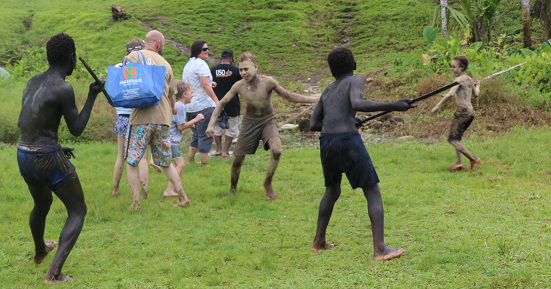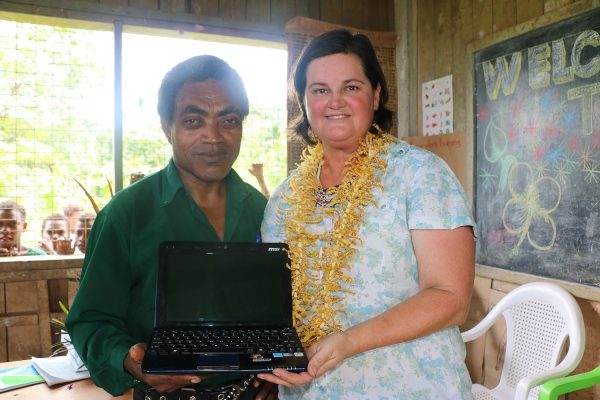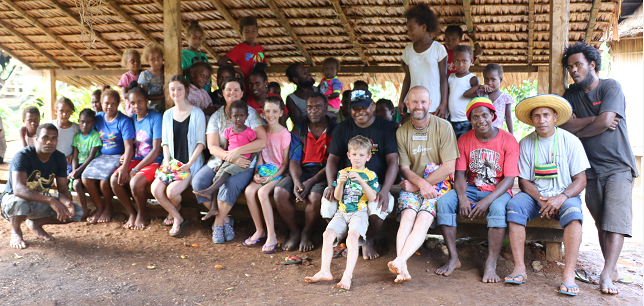
Our family, our workers and their families, back in their village
The Seasonal Worker Program: a personal story
By Kerry McCarthy
1 December 2017
This is an edited transcript of a speech given at the Pacific Labour Mobility Annual Meeting in Brisbane in November 2017.
My husband and I run a vegetable business on the Darling Downs, which is just under three hours west of Brisbane. We specialise in growing leafy greens and sell to both the Brisbane Markets and big grocery chains.
My talk today is from the point of view of a farmer. I do not have the facts and figures and I cannot show you graphs or charts. I can only relay my own experience and paint a picture of the seasonal worker story and how this program is changing lives for the better.
Five years ago, we became involved in the Seasonal Worker Program due to necessity. At that time we were an isolated farm and could not find reliable local labour to employ. We tried using labour hire companies from the Lockyer Valley but as we were on the end of the line in regards to location, we were always given last priority. If you hadn’t already heard, in regional Australia there is a major labour shortage!
We found out about the Seasonal Worker Pilot Program at an Ausveg Conference and jumped at the opportunity to get on board.
We are only a small operation by Australian vegetable farm standards. We started with two workers under the Program and now employ 12 men and women. Our growing season is from October to July.
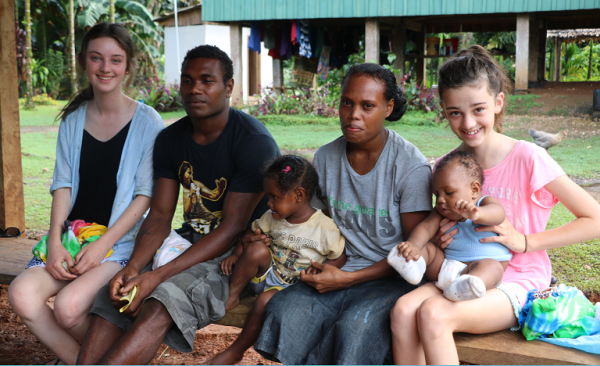
Our workers
Our workers come from a remote rural village in the Solomon Islands. They have no road access and no electricity. They don’t own cars or operate technical machinery. They have to grow or hunt food or the family does not eat. They must build their own shelters. They are 100% accountable for their own wellbeing – a rare trait in modern Australia. Job opportunities are rare to non-existent. This standard of living helps shape their positive work ethic. They arrive in Australia physically and mentally fit. They are here to work. They want to work. They are enthusiastic and show ownership. They want to learn and they want to be appreciated for the job that they perform. They are energetic, easily trained, honest, happy and reliable, and they are grateful. They really are every employer’s dream.

In short, the Seasonal Worker Program has offered us a reliable labour solution. It has given us the confidence to expand our business, knowing that we can plan ahead, as our workers are going to be there for us and are going to stay with us for the whole season. Yes, it is a lot of paperwork. Yes, it is time consuming to get involved, and, yes, it is a lot of responsibility to ensure the wellbeing of the workers whilst they are employed in your care 24 hours a day. However, the benefits outweigh the disadvantages. We estimate that one of our Solomon Island workers does the workload of nearly two regular workers.
Win-win
The Seasonal Worker Program is a win-win.
I, the farmer, get what I want – a productive season and a viable business with a future.
Our workers get cash – money to take home and better the lives of their families, their villages and their communities. They not only get income, they go home with a sense of self-worth. A sense of accomplishment, hope for a brighter future, and ideas. Ideas to invest in their future. Perhaps business opportunities that were never possible before. Some of the things our workers have invested in are: a taxi based in Honiara, a fishing boat (with a motor) that is now permanently leased, and tools and machinery (generators, and chainsaws for cutting timber to build their own homes or to sell for income). We have had five new high-quality houses built by our workers, as well as other infrastructure improvements.
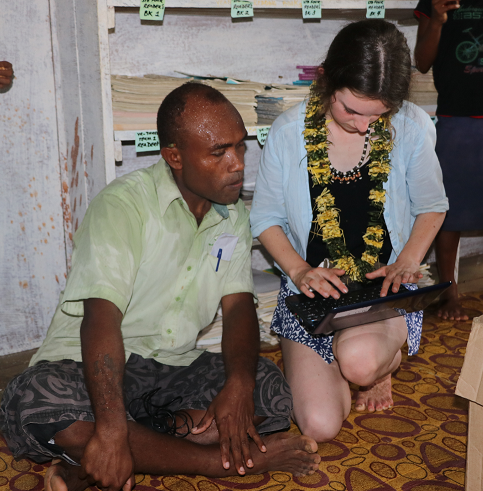
Our employees have now become employers – they pay neighbours to do jobs for them whilst they are in Australia: cut timber, create gardens, build structures. The economic opportunity spreads through the greater community. This wealth is being shared. They financially support the local school where over 300 children are registered. This school has two permanent classrooms and no drinking water or sanitation. This school now has hope. Hope for a better future. My family has visited the village for the last two years; to witness the changes first hand is overwhelming. All of this positive change has come from our small business. It boggles the imagination as to what can be achieved on a broader scale.
The town of Clifton is our closest town, with a population of approximately 1,300 people. Our workers have integrated so well into the community that they have formed friendships with local storeowners and residents. They have earned the respect of the locals by being polite, kind and friendly and supporting local businesses by buying from them. They volunteer to help set up for the school fete, they attend the local show (where they are hot contestants in the cross-cut saw competition) and rodeo, and they attend local church services. We are often asked: “When are the boys coming back?” At Christmas they have been given beef and lamb from neighbours, and during their stay they are usually gifted several whole pigs and multiple unwanted roosters, which they excitedly accept.
Back in the Solomons we have babies named in our honour. We are treated with respect and we are treated as family. Up that river, in that remote jungle village, the boys have built me my own washroom with a flushing porcelain toilet. Throughout our Seasonal Worker Program journey, we have developed a close working relationship with the Honiara Government Labour Sending Unit, as well as the Australian High Commission in Honiara. It is great to have friends with a common cause.
Pacific Labour Scheme
I am so excited by the new Pacific Labour Scheme and the opportunities it brings for the Solomon Islands, other Pacific Island neighbours, and Australian businesses.
Pacific Islanders have never had such access to Australian working visas. Australia spends a fortune on much-needed economic aid in these regions, but these working visa programs will help bring independent financial security to those lucky ones who are involved in them.
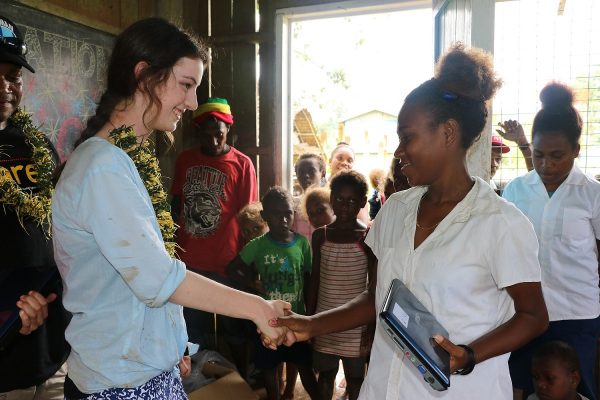
While our employment will probably remain under the Seasonal Worker Program, the opportunities for other Australian businesses who sign up to the new program are endless. We have been directly asked by the local Clifton hospital board if any of the wives could come and work in the local nursing home. They are desperate for unskilled staff.
This opportunity for the Pacific has a long time been in the making and I applaud the Australian Government for having the foresight to bring the program to fruition.
We need to continue to support the Pacific Governments’ Labour Sending Units, ensuring they send the best quality workers with the best intentions to these positions in Australia. The word is already spreading and increasing numbers of Australian employers are realising the benefits of the program to their businesses.
I will continue to “bang the drum” about the Seasonal Worker Program and the Pacific Labour Scheme. They are no-brainers. And I can’t wait to see their evolution over the next few years. The potential for these schemes are staggering.
About the author/s
Kerry McCarthy
Kerry McCarthy and her family own a vegetable farm on the Darling Downs in Queensland and have been employing workers from Solomon Islands under the Seasonal Worker Programme since 2012.

